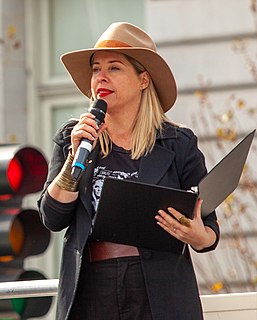A Quote by Ban Ki-moon
We have all heard of the web of life. The way we live threatens to trap us in a web of death.
Related Quotes
Do you understand how there could be any writing in a spider's web?" "Oh, no," said Dr. Dorian. "I don't understand it. But for that matter I don't understand how a spider learned to spin a web in the first place. When the words appeared, everyone said they were a miracle. But nobody pointed out that the web itself is a miracle." "What's miraculous about a spider's web?" said Mrs. Arable. "I don't see why you say a web is a miracle-it's just a web." "Ever try to spin one?" asked Dr. Dorian.
The 10th Annual Webby Awards represent an extraordinary opportunity to celebrate the evolution of the web from an esoteric medium to the driving force shaping popular culture, business, and society today, .. As the web enters its second decade as an integral part of everyday life, our expanded categories recognize those who are pushing the web in exciting new directions.
In every philosophical school, three thinkers succeed one another in the following way: the first produces out of himself the sapand seed, the second draws it out into threads and spins a synthetic web, and the third waits in this web for the sacrificial victims that are caught in it--and tries to live off philosophy.








































